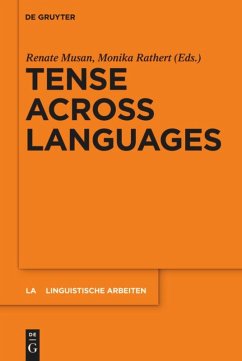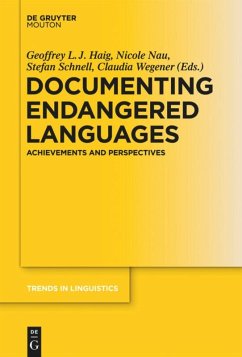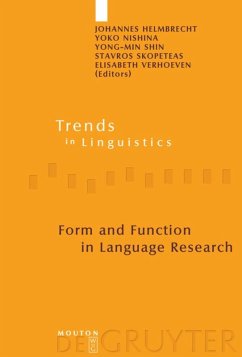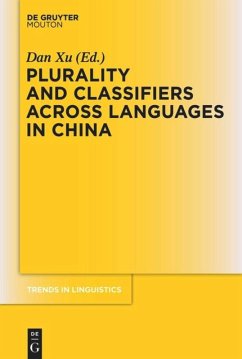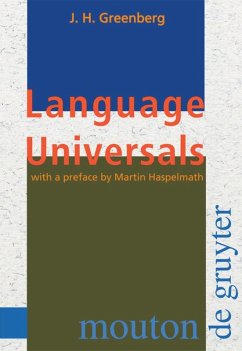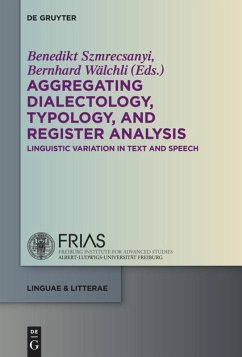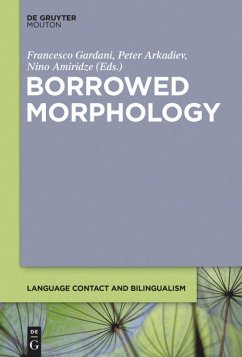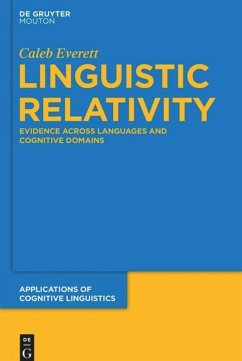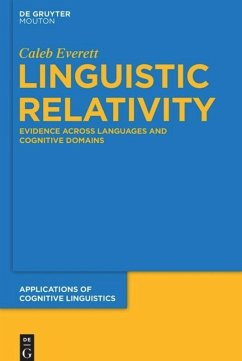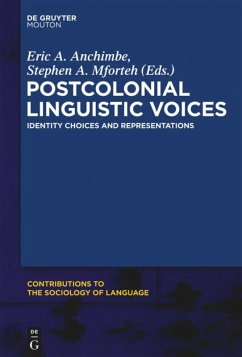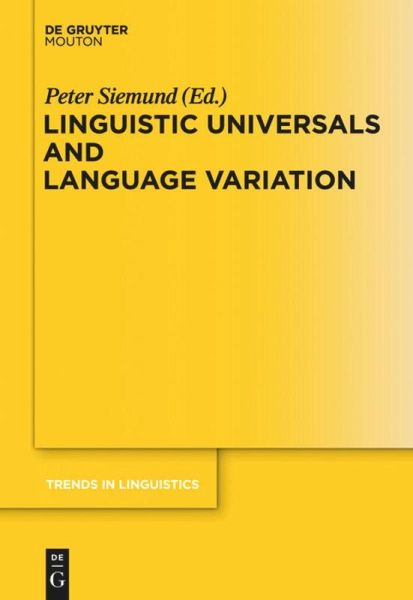
Linguistic Universals and Language Variation
Versandkostenfrei!
Versandfertig in 6-10 Tagen
138,99 €
inkl. MwSt.

PAYBACK Punkte
69 °P sammeln!
The volume explores the relationship between linguistic universals and language variation. Its contributions identify the recurrent patterns and principles behind the complex spectrum of observable variation. The volume bridges the gap between cross-linguistic variation, regional variation, diachronic variation, contact-induced variation as well as socially conditioned variation. Moreover, it addresses fundamental methodological and theoretical issues of variation research.The volume brings together internationally renowned specialists of their fields while, at the same time, offering a platfo...
The volume explores the relationship between linguistic universals and language variation. Its contributions identify the recurrent patterns and principles behind the complex spectrum of observable variation. The volume bridges the gap between cross-linguistic variation, regional variation, diachronic variation, contact-induced variation as well as socially conditioned variation. Moreover, it addresses fundamental methodological and theoretical issues of variation research.
The volume brings together internationally renowned specialists of their fields while, at the same time, offering a platform for gifted and highly talented young researchers. The authors come from different theoretical backgrounds and through their work illustrate a rich array of scientific methods. All authors share a strong belief in empirically founded theoretical work.
The contributions span a high number of languages and dialects from many parts of the world. They are extremely broad in their empirical coverage addressing an impressive selection of grammatical domains.
The volume brings together internationally renowned specialists of their fields while, at the same time, offering a platform for gifted and highly talented young researchers. The authors come from different theoretical backgrounds and through their work illustrate a rich array of scientific methods. All authors share a strong belief in empirically founded theoretical work.
The contributions span a high number of languages and dialects from many parts of the world. They are extremely broad in their empirical coverage addressing an impressive selection of grammatical domains.



